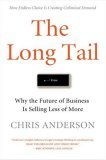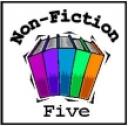Ch. 3 The Matrix – transmedia storytelling
p. 114 storytelling becomes world building
Ch 4 Star Wars – fan film
www.evanmather.com
Probot Productions
Pixelvision, Machinima
Japanese anime, Japanese cos. more tolerant, MIT Anime Club
The Mall of The Sims – extensive fan-generated content
Ch. 5 “Harry Potter wars”
p 169
So far, we have seen that corporate media increasingly recognizes the value, and the threat, posed by fan participation. Media producers and advertisers now speak about “emotional capital” or “lovemarks” to refer to the importance of audience investment and participation in media content. Storytellers now think about storytelling in terms of creating openings for consumer participation. At the same time, consumers are using new media technologies to engage with old media content, seeing the Internet as a vehicle for collective problem solving, public deliberation, and grassroots creativity. Indeed, we have suggested that it is the interplay – and tension – between the top-down force of corporate convergence and the bottom-up force of grassroots convergence that is driving many of the changes we are observing in the media landscape.
imaginary Hogwarts school newspaper The Daily Prophet – example of “affinity space” (James Paul Gee), informal learning culture
Ch. 6 – politics & popular culture – Howard Dean campaign
p 211
New ideas and alternative perspectives are more likely to emerge in the digital environment, but the mainstream media will be monitoring those channels, looking for content to co-opt and circulate. Grassroots media channels depend on the shared frame of reference created by the traditional intermediaries ; much of the most successful “viral” content of the Web (for example, the “Trump Fires Bush” video) critiques or spoofs mainstream media. Broadcasting provides the common culture, and the Web offers more localized channels for responding to that culture.
p 220 – Photoshop appropriation and manipulation of images, “grassroots equivalent of political cartoons”
p 222 – historically consumption opposed to participation, but now consumption is more public, collective, topic of public discussion & deliberation; shared interests as basis for shared vision & actions.
Walter Benjamin – “The Work of Art in the Age of Mechanical Reproduction”
p 225 shifting concepts of “informed citizen” – Michael Schudson, “monitorial citizen” – link
connection between game play & civic engagement, ex. Sims’ Alphaville election, Collective Detective
p 235 Pierre Levy Collective Intelligence – “achievable utopia”when sharing of knowledge, exercise of grassroots power become normative
Center for Deliberative Democracy at Stanford
Conclusion
Sequential Tart
Global Frequency
p 254 Wikipedia – shifts what counts as knowledge, what counts as expertise, “self-correcting adhocracy”
p 257 – grassroots media diversifies, broadcast media amplifies
First Amendment = right to participate in a democratic culture
p259
The ideal of the informed citizen is breaking down because there is simply too much for any individual to know. The ideal of monitorial citizenship depends on developing new skills in collaboration and a new ethic of knowledge sharing that will allow us to deliberate together.
Right now, people are learning how to participate in such knowledge cultures outside of any formal educational setting. Much of this learning takes place in the affinity spaces that are emerging around popular culture.
media literacy – how to build a meaningful relationship with media
author Henry Jenkins’s website at MIT: link
by Carol S. Dweck.
.

 The Non-Fiction Five Challenge from “Thoughts of Joy”
The Non-Fiction Five Challenge from “Thoughts of Joy”

